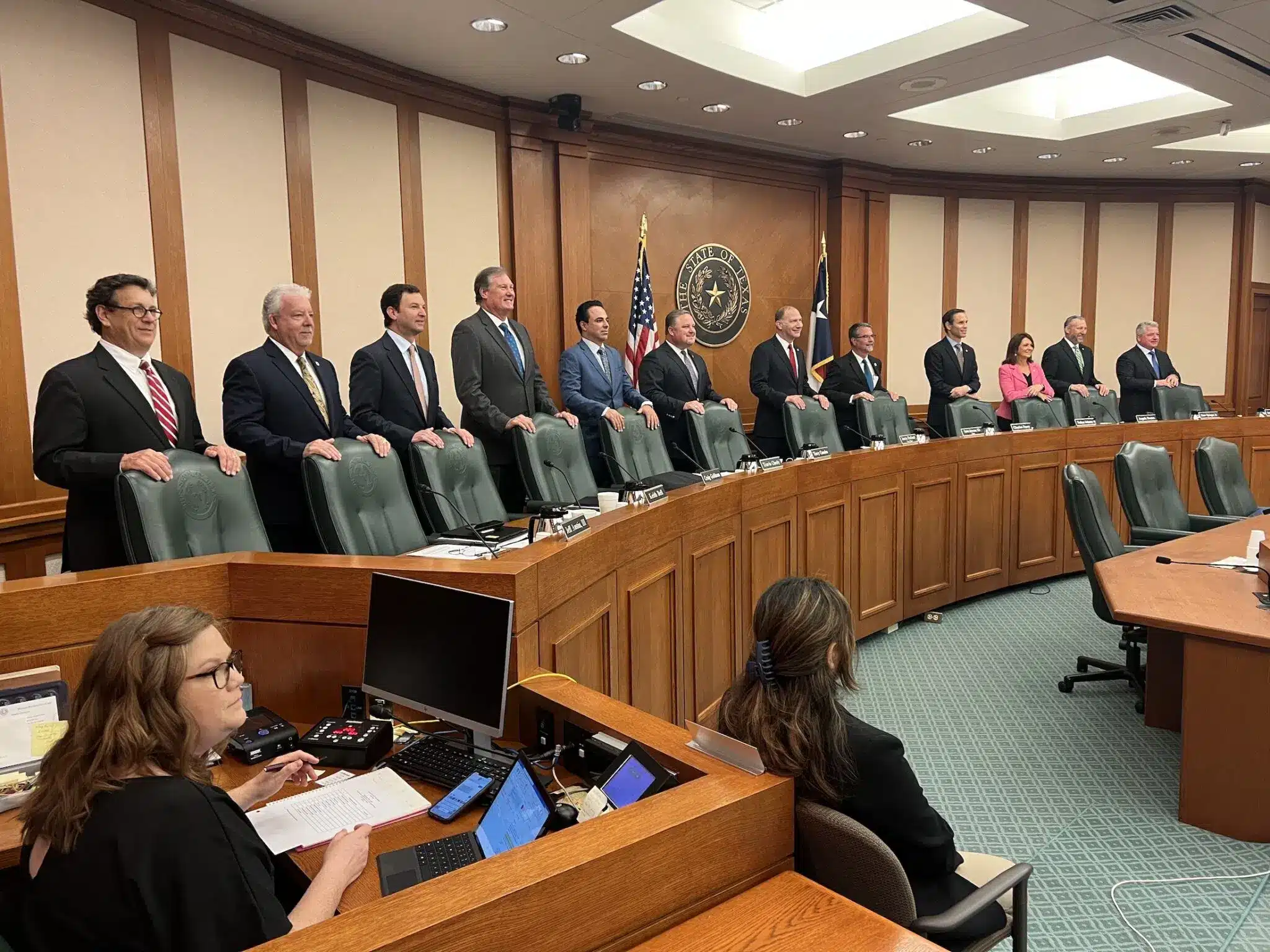The Sunset Advisory Commission is a 12-member legislative commission tasked with improving the efficiency of Texas state agencies, identifying waste, and reviewing whether agencies can be eliminated or merged.
Many Texas agencies have a “sunset” date in their founding statute, which causes the agency to be automatically abolished if not renewed by an act of the legislature. The role of the Sunset Commission to advise the legislature on whether to renew each agency, and if so, in what form.
The Sunset process began in Texas in 1977. Since then it has resulted in the abolition of 79 agencies, including 41 totally abolished and 51 that merged with another agency.
During the Sunset review process, the commission questions the need for each agency. It looks for potential duplication of other public services or programs. The commission also considers ways to improve each agency operationally. It seeks public input on every agency under Sunset review before recommending actions on each agency to the full legislature.
Agencies Subject to Sunset Review
About 130 state agencies are subject to the Texas Sunset Act. Agencies typically undergo review once every 12 years, depending on the law. A problematic agency or one that is politically contentious might go through review more frequently.
About 20 to 30 agencies go through the Sunset process each two-year legislative cycle.
Some agencies are subject to Sunset review for performance but are not subject to abolishment. These include river authorities and agencies created by the Texas Constitution, including the General Land Office and Office of the Attorney General.
Structure of the Sunset Commission
The Sunset Advisory Commission has two parts. The first is the 12-member commission itself, which serves as an advisory body to the Texas Legislature. It consists of 12 legislators and two public members appointed by the lieutenant governor and speaker. The chair and vice-chair rotate annually between the two chambers.

The second part is the staff of the commission, who do the research work necessary to make recommendations to the 12-member board. Most of the staff are policy analysts, and they are led by a director who is appointed by the commission.
The commission has wide-ranging powers to investigate agencies under review. By law, the Sunset staff have the right to attend meetings of other government agencies, even if they are closed to the public. They also have the right to review privileged or confidential material belonging to agencies under review.
The Sunset Commission also may issue a subpoena to compel the attendance of witnesses or the production of records.
Stages of Sunset Review
Sunset Staff Evaluation
The Texas Sunset Advisory Commission carries out its work in three stages over two-year cycles. The first stage involves an evaluation of the agencies under review by Sunset staff. The staff research the agencies, talk with different stakeholders, then publish a report with recommendations.
Sunset Commission Deliberation
Next the commission deliberates the recommendations of the staff, and agencies present their own response on the Sunset staff report. The commission then holds a public hearing at which members of the public may participate. Later, the commission meets again to vote on whether to approve the staff report or change it.
Legislative Action
In the third stage of the Sunset process, bill drafters at the Texas Legislature write a Sunset bill to enact what the commission has recommended. This bill goes through the normal legislative process. It may pass or fail adoption, or it may be amended during the normal bill process.
During this stage, Sunset staff may testify as resource witnesses in the relevant legislative committees.
Abolished Agencies
The following is a partial list of agencies that have been eliminated through the Sunset process in Texas:
- Texas Office of State-Federal Relations (2011): Its functions were absorbed by the Governor’s Office, which took over representing Texas in federal matters.
- Texas Department of Mental Health and Mental Retardation (2004): Its functions relating to mental health and developmental disabilities were transferred to the newly established Department of State Health Services.
- Texas Commission on Alcohol and Drug Abuse (2004): Its addiction treatment services were transferred to the Department of State Health Services.
- Texas Department of Aviation (1995): Its functions relating to the state’s aviation infrastructure and air transportation programs were transferred to the Texas Department of Transportation (TxDOT).
- Texas Department of Economic Development (1993): Its responsibilities for promoting state economic growth and business recruitment were transferred to the Texas Department of Commerce and later to the Texas Economic Development and Tourism Office (within the Governor’s Office). Some functions related to tourism and the arts were taken over by the Texas Cultural Trust.
- Texas Air Control Board (1977): Its functions were transferred to the Texas Natural Resource Conservation Commission (TNRCC), which later became the Texas Commission on Environmental Quality (TCEQ).
- Texas Commission on Human Rights (1983): Its duties related to civil rights enforcement and discrimination complaints were transferred to the Texas Workforce Commission, which consolidated employment-related discrimination responsibilities.
These examples illustrate how the Sunset Review process helped streamline and consolidate the state’s agencies, often merging functions to reduce duplication and improve efficiency.



